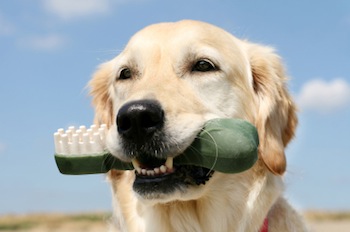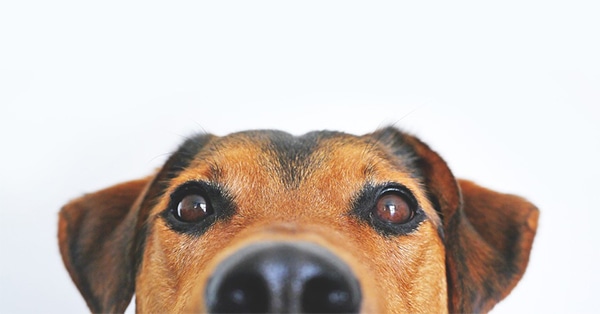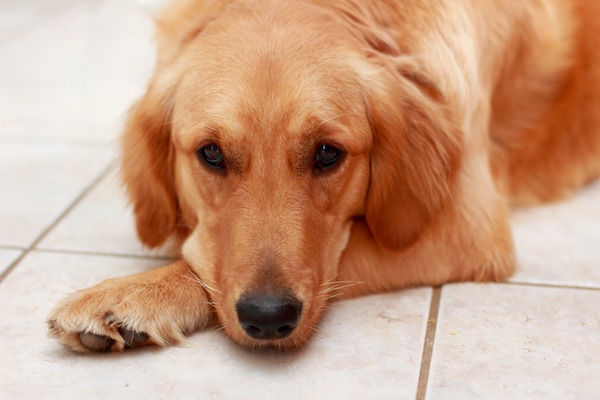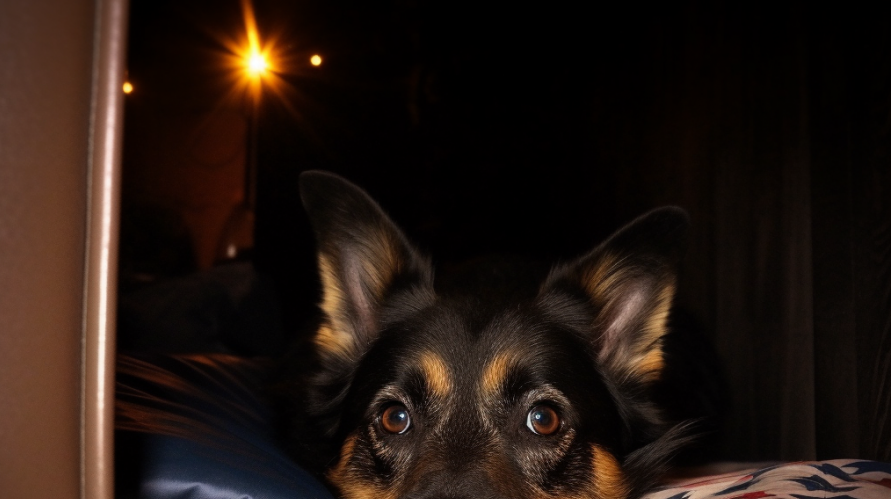Vet Buzz from Bill Barboni, DVM and Chris Pitts, RVT,
Marin Pet Hospital, San Rafael, CA

Your dog can really benefit from having his teeth brushed on a daily basis. Aside from keeping smelly tartar at bay, it’s also a great way to keep your pet healthy. Bacteria built up in the mouth can present a health risk causing infections that then travel throughout the body.
Yes, daily brushing really is the best way to prevent tartar from building up. Use a soft toothbrush and dog-specific toothpaste. When first introducing tooth-brushing to your dog, start by letting him lick a little of the toothpaste. Many times, when your dog figures out that the toothpaste tastes good, he will be a lot more amenable to letting you brush on a regular basis.
Work your way up to putting a little toothpaste on a toothbrush and gently brushing the outsides of the teeth. You can ask your veterinarian to demonstrate proper tooth brushing technique. Or, check out one of the many YouTube videos that make learning a breeze.
Good oral hygiene is of particular importance in elderly dogs as well as those with heart problems. This is because bacteria from the mouth has a particular affinity for hiding out in heart valves. An infection in the heart is the last thing anyone wants.
Furthermore, good oral hygiene will prevent the need for tooth extractions. Teeth and gums that are healthy are less likely to rot and cause trouble. Regular brushing also helps cut down on the incidence of gingivitis. Healthy gum attachment to the teeth is key to keeping those pearly whites where they belong.
A regular dental cleaning is recommended in all healthy dogs, just as regular dental cleanings are recommended for people. Keep in mind that most people brush their teeth twice a day and still require regular cleanings.
Thorough dental cleanings for your dog require general anesthesia. A physical exam is required, and blood work is a good idea. Many times, a dental cleaning can be linked in with another small surgical procedure, such as a small mass removal, thereby keeping down the number of times your dog is anesthetized and the price of the procedure. Another money-saving tip is to get on a regular schedule of dental cleanings. This will make it easier to link up your dog’s annual exam with a dental cleaning, saving you the cost of an additional exam.
You can buy a lot of toothpaste and tooth brushes for the cost of a dental cleaning, so do your best to keep your furry friend’s teeth sparkly!
February is National Veterinary Dental Month. Many veterinarians run promotional specials, so be sure to ask.






